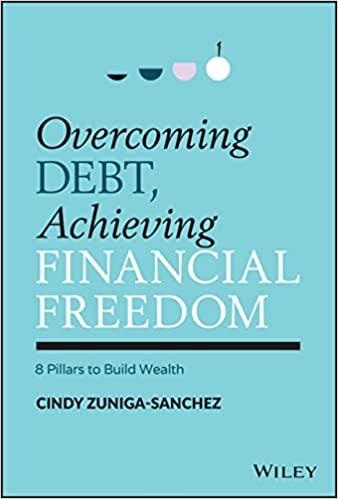In late 1980, the U.S. Commerce Department released new data showing inflation was 15%. At the time, the prime rate of interest was 21%, a
In late 1980, the U.S. Commerce Department released new data showing inflation was 15%. At the time, the prime rate of interest was 21%, a record high. However, many investors expected the new Reagan administration to be more effective in controlling inflation than the Carter administration had been. Moreover, many observers believed that the extremely high interest rates and generally tight credit, which resulted from the Federal Reserve System's attempts to curb the inflation rate, would lead to a recession, which, in turn, would lead to a decline in inflation and interest rates. Assume that at the beginning of 1981, the expected inflation rate for 1981 was 13%; for 1982, 9%; for 1983, 8%; and for 1984 and thereafter, 7%.
a. What was the average expected inflation rate over the 5-year period 1981 - 1985? (Use the arithmetic average.) Round your answer to two decimal places. (I got 8.80%)
b. Over the 5-year period, what average nominal interest rate would be expected to produce a 2% real risk-free return on 5-year Treasury securities? Assume MRP = 0. Round your answer to two decimal places. (I got 10.80%)
c. Assuming a real risk-free rate of 2% and a maturity risk premium that equals 0.1 (t)%, where t is the number of years to maturity, estimate the interest rate in January 1981 on bonds that mature in 1, 2, 5, 10 and 20 years. Round your answers to two decimal places. (need this answer please)
Step by Step Solution
There are 3 Steps involved in it
Step: 1

See step-by-step solutions with expert insights and AI powered tools for academic success
Step: 2

Step: 3

Ace Your Homework with AI
Get the answers you need in no time with our AI-driven, step-by-step assistance
Get Started


